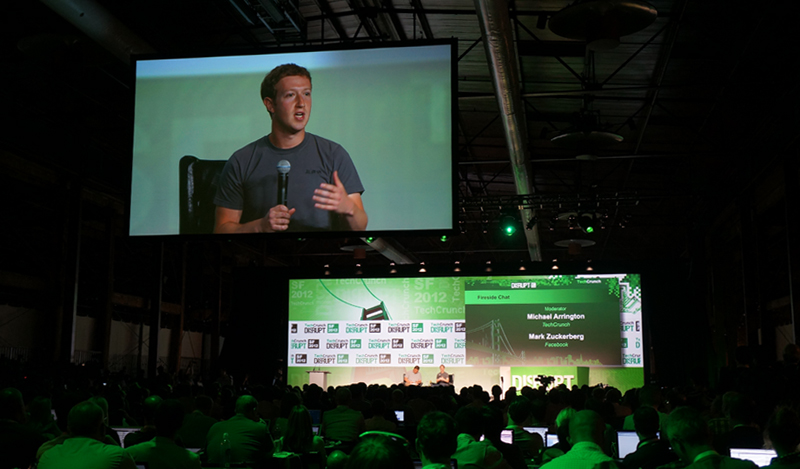Facebook Eyes Search

He’s been quiet since his company’s initial public offering in May, but Facebook founder and CEO Mark Zuckerberg chatted about a number of topics—including the social network’s plans to get into the search business—at a tech conference on Tuesday.
During an interview at TechCrunch Disrupt in San Francisco, Zuckerberg said that “without even trying,” Facebook users perform about a billion queries per day. Most of these involve an attempt to find someone on the social network, but a “meaningful portion” are efforts to find apps and information about brands, he said. “I think that there’s a big opportunity there at some point, and we just need to go do that.”
Facebook would be uniquely positioned to build a search engine because it has so much data on its 950 million users. Search engines like Google and Microsoft’s Bing have evolved to incorporate social features, but it’s not clear whether one from Facebook would look like either of these or something else entirely.
Despite multiple digs from the interviewer, TechCrunch founder and former editor Michael Arrington, Zuckerberg also denied that Facebook is working on a phone. Though this has been rumored many times over the past few years, Zuckerberg said that pursuing a phone has “always been the wrong strategy” for Facebook. “The phone just doesn’t make any sense,” he said.
Even if the company built a phone and got 10 million people to use it, “it doesn’t move the needle for us,” he said, adding that Facebook is more intent on building a social network that is as deeply integrated as possible with all the devices its users want to use.
Zuckerberg also said that while he no longer writes Facebook code—the company has a rule that you must maintain your own code, and he wouldn’t want others to be responsible for his—he still codes for fun.
And, he said, his code does break. “Everything I do breaks,” he said. “But we fix it quickly.”
Zuckerberg also addressed Facebook’s stock, which has fallen by half since the company began trading publicly, saying its performance has been “disappointing.” He said that some people underestimate the company right now, but he’d rather be underestimated than overestimated, since it gives the company the latitude to do things that excite and amaze people.
“When we look back 10, 20 years from now, the legacy of this company should be we’ve connected all the people in the world and everyone can share what they want. And that’s a lot,” he said.
His remarks may have assuaged some investors’ concerns: Facebook shares rose more than 3 percent in after-hours trading.
Keep Reading
Most Popular
Large language models can do jaw-dropping things. But nobody knows exactly why.
And that's a problem. Figuring it out is one of the biggest scientific puzzles of our time and a crucial step towards controlling more powerful future models.
The problem with plug-in hybrids? Their drivers.
Plug-in hybrids are often sold as a transition to EVs, but new data from Europe shows we’re still underestimating the emissions they produce.
Google DeepMind’s new generative model makes Super Mario–like games from scratch
Genie learns how to control games by watching hours and hours of video. It could help train next-gen robots too.
How scientists traced a mysterious covid case back to six toilets
When wastewater surveillance turns into a hunt for a single infected individual, the ethics get tricky.
Stay connected
Get the latest updates from
MIT Technology Review
Discover special offers, top stories, upcoming events, and more.